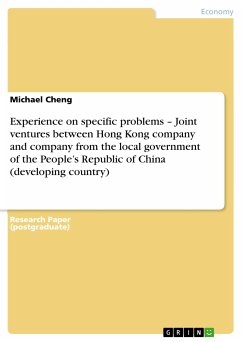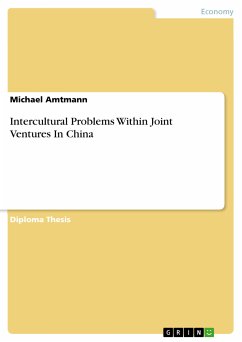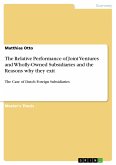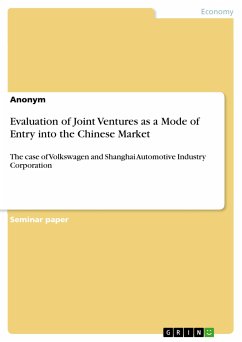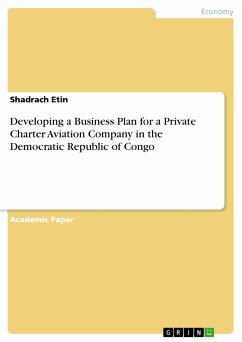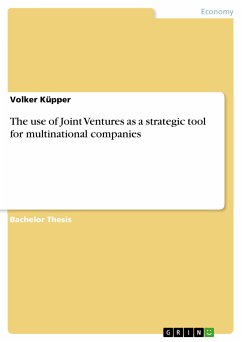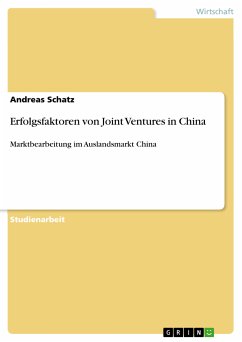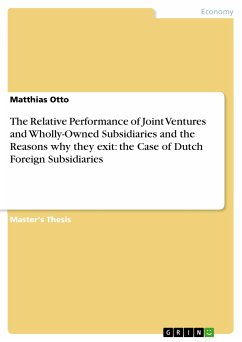Research Paper (postgraduate) from the year 2007 in the subject Business economics - Business Management, Corporate Governance, grade: A (95% of 100%), The American Central University, language: English, abstract: Since 1978, Deng Xiaoping succeeded to launch his economic reform program “Open Door” policy that encouraged foreign investments. It was the beginning of a new era for China. Deng’s idea was to open China to foreign investments in order to acquire resources, such as technology, expertise knowledge, etc... Deng promoted a socialist market economy with Chinese characteristics. It means that a market economy with decentralized public investment and a socialist framework of the society. However, he changed the political system as well, decentralized economic decision-making, and began legal and bureaucratic reforms. Chinese economy has experienced significant growth. There is no doubt that this economics expansion has been a direct result of Deng Xiaopeng’s “open door” policy. Foreign investments have rapidly increased and more factories were established by offering tax privileges, such as reduced import tariffs or tax exemptions for certain imports amongst others. In fact, among the developing countries, China is currently the one that attracts the most foreign investments. Joining the World Trade Organization (WTO) in 2001, China pushed this development even further.
